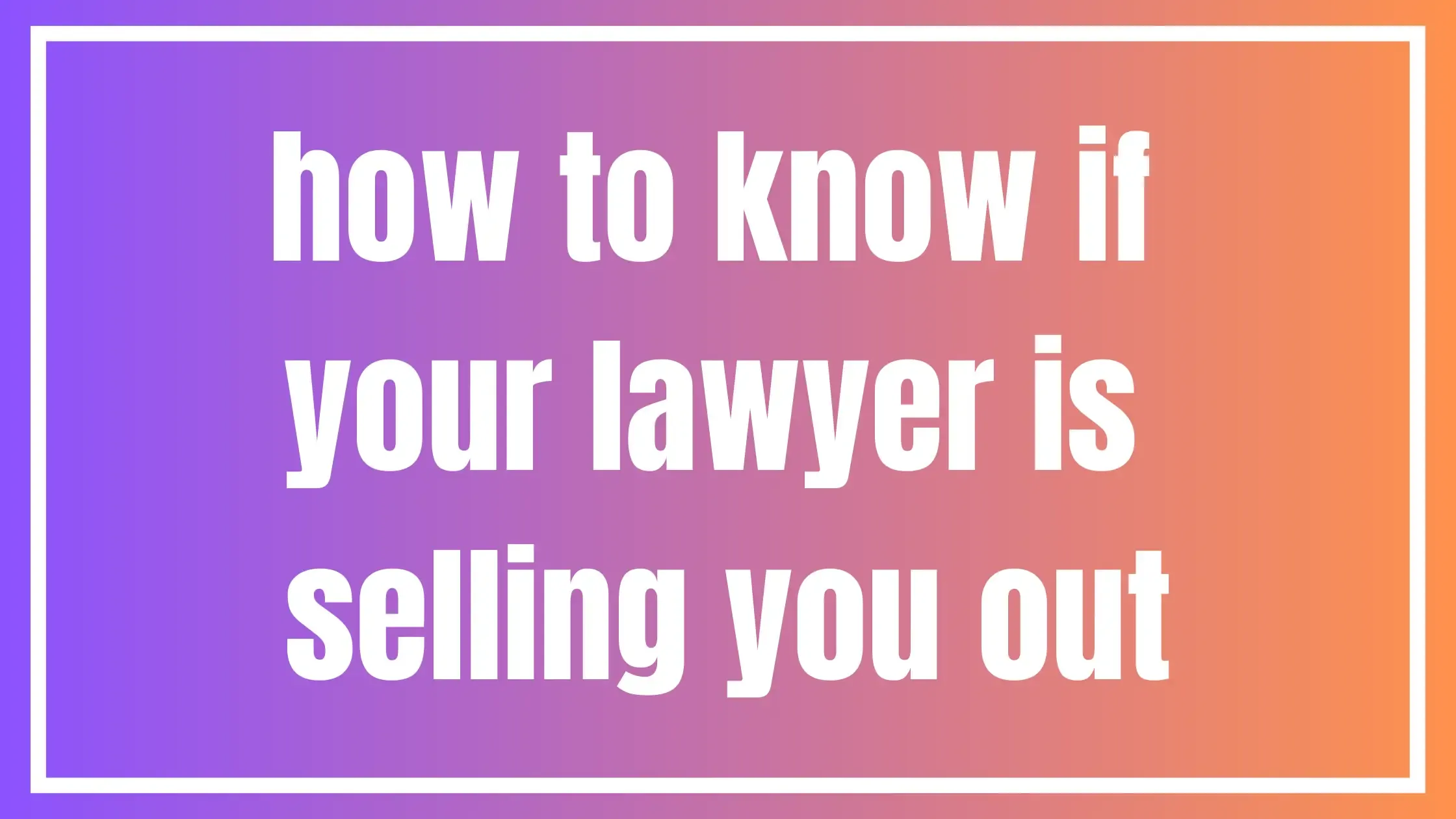 |
| how to know if your lawyer is selling you out |
In today's complex legal landscape, the relationship between a lawyer and their client is built on trust and the expectation that the attorney will act in the client's best interest.
But what happens when that trust is compromised, and you suspect your lawyer is "selling you out"?
In this article, we'll delve into the meaning of "selling out" in the context of a lawyer-client relationship, explain why it's crucial to identify such behavior, and provide a comprehensive guide on recognizing the signs and taking necessary actions.
{getToc} $title={Table of Contents} $count={Boolean}
Define the term "selling out" in the context of a lawyer-client relationship.
"Selling out" in the realm of legal representation refers to situations where a lawyer prioritizes their own interests, the interests of opposing parties, or financial gains over the best interests of their client.
This betrayal of trust can manifest in various ways, leading to detrimental outcomes for clients.
Explain why it is important to be able to identify if your lawyer is selling you out.
Recognizing if your lawyer is selling you out is of paramount importance because it directly affects the outcome of your legal matter.
When your legal counsel doesn't act in your best interest, your case can suffer irreparable harm, and you may even face significant financial losses.
Identifying such behavior early can help you make informed decisions about your legal representation.
List the signs that may indicate that your lawyer is selling you out.
- Unresponsiveness: If your lawyer consistently ignores your calls and emails, it may be a sign that they are not prioritizing your case.
- Lack of Communication: Your lawyer should keep you informed about the progress of your case. If they fail to do so, it could indicate negligence or a hidden agenda.
- Autonomous Decision-Making: When your lawyer makes crucial decisions about your case without consulting you, it suggests a disregard for your input and preferences.
- Favoring the Opposing Party: If your lawyer seems more interested in accommodating the other party's interests or settling quickly rather than advocating for your rights, it's cause for concern.
- Excessive Fees: Lawyers are entitled to fair compensation, but if your attorney is charging exorbitant fees without delivering commensurate results, it's a warning sign.
- Pressure to Settle: Your lawyer pushing you to settle for a significantly lower amount than you believe you deserve could be indicative of prioritizing convenience over your best interests.
- Hopelessness: If your lawyer repeatedly tells you that your case is hopeless without proper explanation or effort, they may not be committed to your cause.
What to do if you think your lawyer is selling you out
- Talk to Your Lawyer: Begin by addressing your concerns directly with your lawyer. They may not be aware of the impact of their actions on your confidence in their representation.
- Consider a New Lawyer: If your discussions with your current lawyer do not alleviate your concerns, it might be time to seek new legal counsel that genuinely prioritizes your interests.
- File a Complaint: You have the right to file a complaint with the bar association or relevant regulatory body if you believe your lawyer's conduct has been unethical or detrimental to your case.
Conclusion
In the world of law, trust between a lawyer and their client is the cornerstone of a successful legal relationship.
Being able to identify signs that your lawyer may be selling you out is crucial for protecting your rights and interests.
By addressing these concerns head-on and taking appropriate action, you can ensure that your legal representation aligns with your best interests.
In conclusion, remember that a lawyer who truly values your case will work diligently to achieve the best possible outcome for you.
Don't settle for anything less, and always be vigilant in safeguarding your legal rights.

.webp)